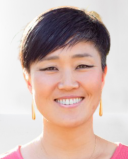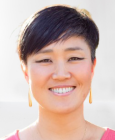Bias
The Power of Collective Healing Among Asian Women
Breaking the silence.
Posted February 8, 2022 Reviewed by Lybi Ma
It is critical and imminent that trauma stemming from racial and sexual violence, war, migration, discrimination, and microaggressions must be addressed in culturally respectful, sustainable, and effective ways. Research shows that the majority of Asia Americans do not receive adequate, culturally effective mental health services while facing prejudice, discrimination, racism, and violence and experiencing depression, anxiety, fear, and other mental health issues.
In fact, most counseling theories and interventions in psychology and counseling are based on a Western understanding of mind and body. Diversity within Asian and Asian Americans in terms of culture, ethnicity, and language with varied historical experiences in the United States is often dismissed in mental health. Somatization is often found among Asians because the influence of Confucian philosophy and collectivism discourage emotional expressions and psychological distress but expect to maintain harmony and peace. Therefore, openly discussing mental illness or counseling topics is highly stigmatized in many Asian cultures. There is a lack of visibility and understanding of mental health issues and interventions specifically for Asian communities in the United States.
A survey published by the Pew Research Center in 2020 reported that Asian adults are more likely than Black, Hispanic, and white adults to say they have been the subject of slurs or bad jokes and have fear of being threatened or attacked because of their race or ethnicity since the coronavirus outbreak began. There have been over 3,800 reports on anti-Asian violence and hate crimes in the past year since the pandemic began, according to Stop AAPI Hate. This number has been rapidly increasing despite underreporting by Asians and Asian Americans due to language barriers, mistrust of the police, fear of retaliation, and shame. The COVID-19 pandemic revealed and exacerbated anti-Asian racism and xenophobia in the United States; there is a long history of discrimination, oppression, and marginalization of Asians and Asian Americans in the United States, which has gained more visibility recently.
For Asian and Asian American women, here are some spoken and unspoken messages we receive from family members, society, and culture: “Be quiet.” “Don’t speak up.” “Don’t be different.” “Don’t be difficult.” Those voices continue to play an important role in personal, professional, and social interactions in daily life. Many Asian women think our silence protects us from shame, guilt, and judgment, even believing that keeping quiet keeps them safe. On the other hand, the truth was the opposite for Asian women who struggle to break the silence to speak up about their own needs, rights, and experiences.
In collaboration with Poonam Singh, founder of the non-profit Soulforce Leadership, I created the Breaking the Silence project providing workshops based on exploring emotions, thoughts, and experiences related to violence and harassment against Asian and Asian American women. Those workshops support participants to connect with the inner truth and express their authentic voices through multi-modalities used in psychology, education, mindfulness, and wellness. We use frameworks and counterstories to understand identity as a construct through interaction in a social context, stories that match one’s experiences of self can be shared, understood, and explored collectively in a safe space. Together, we transformed our trauma into a source of love and healing.
Participants shared a great opening and curiosity about their Asian heritage and examined cultural messages that suppressed their needs and authentic voices. The participants expressed:
“I started talking about my Asian identity; I hadn’t thought about my ambivalence and embarrassment around not being Asian enough in a while.”
“It was powerful to co-experience the courageousness in a community and connect with my courageous self.”
“I became more confident in myself and in my ability to show up for myself.”
There are several considerations when supporting Asian and Asian American women to break the silence and start the healing journey:
- Be open and curious about the stories of your family and ancestors.
- Explore told and untold stories in your family and examine the role of silence in them.
- Examine cultural stigma to expressing emotional vulnerability, seeking help, and acknowledging mental illness.
- Evaluate cultural expectations on gender roles and stereotypes about Asians and women.
- Set healthy boundaries with family and relatives when it comes to judging your life and learning to satisfy your own needs, hopes, and purpose in life.
- Practice speaking and listening with empathy and compassion while having conversations about painful and uncomfortable topics.
References
Seek support from a mental health professional when needed or find a community where you feel safe and connected, such as the following:
Asian American Psychological Association
Asian & Pacific Islander American Health Forum
Asian American Health Initiative
Asian Mental Health Collective
National Asian American Pacific Islander Mental Health Association
Asian American/Pacific Islander Communities And Mental Health


